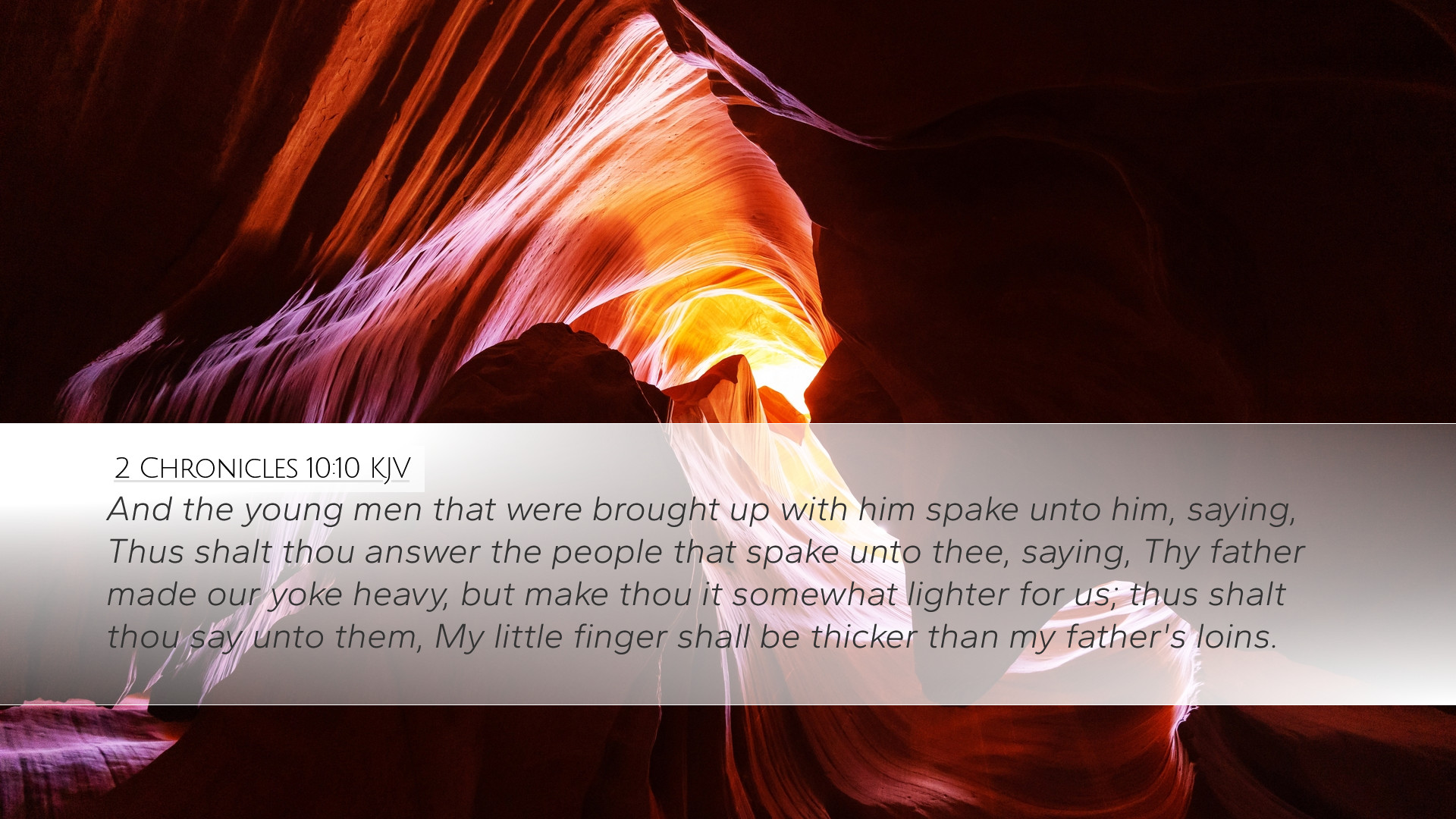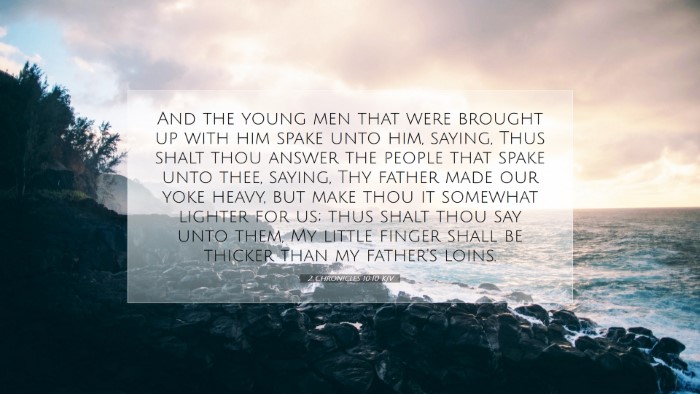Commentary on 2 Chronicles 10:10
The verse 2 Chronicles 10:10 presents an essential moment in the history of Israel, illustrating the challenges of leadership and the expectations of the people. In this passage, King Rehoboam receives counsel on how to govern his subjects, setting the stage for significant political and spiritual implications.
Exegesis of the Passage
Text: "And the young men that were brought up with him spake unto him, saying, Thus shalt thou speak unto the people that said unto thee, Thy father made our yoke heavy, but thou, make it lighter for us; thus shalt thou say unto them, My little finger shall be thicker than my father's loins."
Contextual Overview
The background of this verse involves the ascension of Rehoboam, son of Solomon, to the throne. Following Solomon's reign characterized by grand projects and heavy taxation, the people appeal to Rehoboam for relief. The consultation of young advisers reflects a generational divide in wisdom and governance.
Counsel from Young Advisors
Rehoboam's decision to heed the advice of his youthful companions rather than the elder statesmen indicates a significant flaw in his leadership approach.
- Matthew Henry emphasizes that youthful advisors often lack the experience necessary to provide godly counsel.
- Albert Barnes notes this as a critical moment where personal pride and ambition overshadow the wisdom of age and experience.
- Adam Clarke critiques Rehoboam’s disregard for the elder's wisdom as indicative of a deeper spiritual and moral failing.
Message to the People
Rehoboam's response to the people's request reflects an attitude that would ultimately foster division:
- The metaphor of his "little finger thicker than my father's loins" suggests a boastful and harsh approach, indicating an intention to rule with a stronger hand rather than showing compassion.
- Henry remarks on this immoderate reaction, suggesting that leadership devoid of humility often leads to rebellion.
- Barnes captures that this escalated threat signals a departure from the more gentle rule of Solomon, which is important for understanding the ensuing turmoil.
Theological Implications
The responses given in this chapter communicate broader themes important for both contemporary application and theological reflection:
- Authority and Responsibility: Leaders are called to serve their communities with humility, introspection, and wisdom, acknowledging the collective needs of their followers.
- Generational Wisdom: There exists an inherent value in the wisdom of the ages, particularly regarding governance, which cannot be easily dismissed by youthful exuberance.
- Consequences of Pride: Rehoboam's pride sets the stage for civil strife within Israel, illustrating that decisions borne from pride can have devastating consequences for a nation.
Lessons for Today’s Leaders
Modern leaders can draw from Rehoboam’s experience with the following implications:
- Consider multiple perspectives: Engaging more voices, especially those grounded in experience, can lead to wiser decisions.
- Practice humility: Recognizing that leadership is ultimately a service to others can transform the way authority is wielded.
- Beware of making hasty decisions: Leaders should reflect carefully before reacting, ensuring their choices don't stem from pride or insecurity.
Conclusion
The account of 2 Chronicles 10:10 serves as a sobering reminder for leaders in all contexts. The temptation to lean on fresh, untested advice at the expense of traditional wisdom can lead to disaster both in the past and present.
Through this verse, we observe the Scriptural principles that underpin effective governance and the quality of leadership that God desires—one that balances strength with compassion, advice with wisdom, and individual ambition with communal responsibility.


